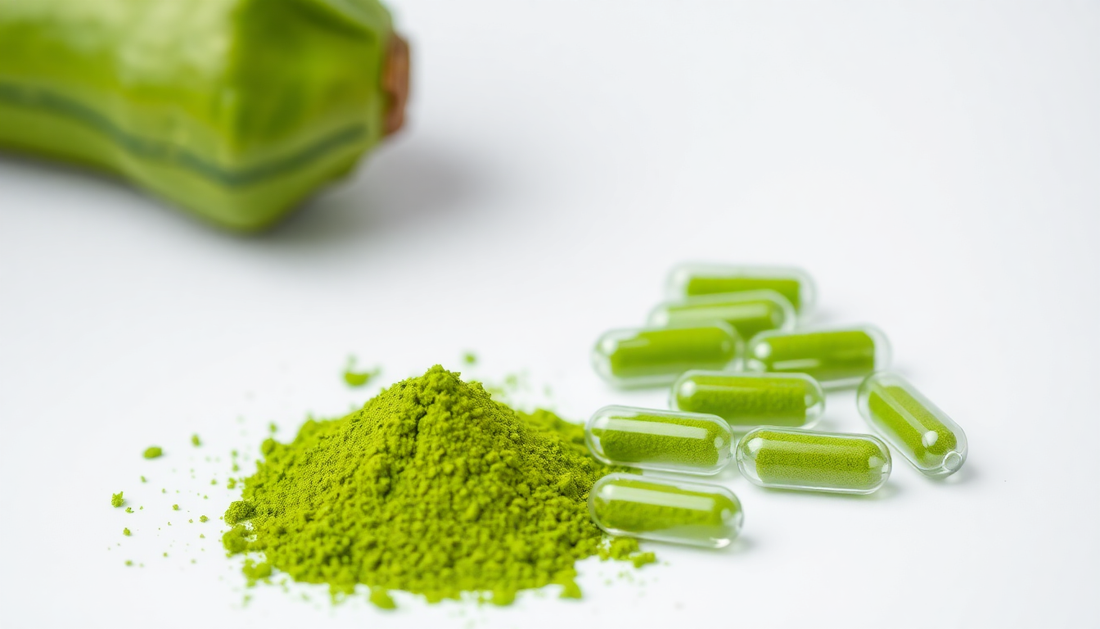Discover the power of nature's finest herbs at DivyaHerb. We offer a wide range of high-quality herbal supplements to support your holistic healing journey. Shop our natural remedies today and experience the difference!
Introduction to Karela (Bitter Gourd)
What is Karela?
Karela, also known as bitter gourd or bitter melon, is a unique and distinctive vegetable that has been used in traditional medicine for centuries. This oblong-shaped fruit is characterized by its distinct bitterness, which is often considered an acquired taste. However, this very bitterness is what makes karela so beneficial for our health.
Scientific Name and Family
Karela, scientifically known as Momordica charantia, belongs to the Cucurbitaceae family, which includes other well-known vegetables such as cucumbers, squash, and pumpkins.
Origins and History
Karela is believed to have originated in the Indian subcontinent and has been used in Ayurvedic medicine for thousands of years. It has also been an integral part of traditional Chinese medicine and is widely cultivated and consumed throughout Asia, Africa, and the Caribbean.
Nutritional Value of Karela
Macronutrients
Karela is a low-calorie vegetable, providing only about 17 calories per 100 grams. It is also a good source of dietary fiber, with around 2.8 grams per 100 grams. Karela contains a moderate amount of carbohydrates and a negligible amount of fat.
Micronutrients
Karela is rich in a variety of essential vitamins and minerals. It is an excellent source of vitamin C, providing around 93% of the recommended daily intake per 100 grams. It also contains significant amounts of vitamin A, vitamin K, folate, and several B vitamins.
In terms of minerals, karela is a good source of iron, magnesium, phosphorus, and potassium. It also contains trace amounts of calcium, zinc, and copper.
Vitamins and Minerals
The key vitamins and minerals found in karela include:
- Vitamin C: Supports immune function, collagen production, and antioxidant protection.
- Vitamin A: Promotes eye health, skin health, and immune function.
- Vitamin K: Plays a crucial role in blood clotting and bone health.
- Folate: Necessary for cell growth and development, especially during pregnancy.
- Vitamin B6: Involved in protein metabolism and red blood cell formation.
- Iron: Crucial for the production of hemoglobin and the transport of oxygen in the body.
- Magnesium: Supports muscle and nerve function, as well as energy production.
- Potassium: Helps maintain healthy blood pressure and heart function.
Health Benefits of Karela
Diabetes Management
One of the most well-known benefits of karela is its potential to help manage diabetes. Karela contains a compound called charantin, which has been shown to have hypoglycemic (blood sugar-lowering) effects. Additionally, karela is rich in antioxidants and fiber, both of which can help regulate blood sugar levels.
Weight Loss
Karela may also be beneficial for weight loss due to its low-calorie content and high fiber content. Fiber helps promote feelings of fullness and can slow the absorption of nutrients, which may lead to reduced calorie intake and ultimately, weight loss.
Cancer Prevention
Karela is rich in antioxidants, including vitamin C, vitamin A, and various polyphenols. These compounds can help neutralize harmful free radicals, which are believed to play a role in the development of certain types of cancer. Some studies have suggested that karela may have anti-cancer properties, particularly in relation to breast, prostate, and pancreatic cancers.
Liver Health
Karela is believed to have hepatoprotective (liver-protecting) properties. It may help support liver function by reducing inflammation and oxidative stress, as well as by promoting the regeneration of liver cells.
Skin Health
The antioxidant and anti-inflammatory properties of karela may also benefit skin health. Karela has been used in traditional medicine to treat various skin conditions, such as eczema, psoriasis, and acne.
Digestive Health
Karela is a good source of fiber, which is essential for maintaining a healthy digestive system. The fiber in karela can help regulate bowel movements, prevent constipation, and support the growth of beneficial gut bacteria.
Respiratory Health
Some research suggests that karela may have beneficial effects on respiratory health. The antioxidant and anti-inflammatory properties of karela may help alleviate symptoms associated with respiratory conditions, such as asthma and chronic obstructive pulmonary disease (COPD).
Traditional Uses of Karela
Ayurvedic Medicine
In Ayurvedic medicine, karela has been used for centuries to treat a variety of health conditions. It is believed to have properties that can help balance the three main doshas (Vata, Pitta, and Kapha) and is often used to address issues related to the digestive, respiratory, and circulatory systems.
Traditional Chinese Medicine
Karela has also been an integral part of Traditional Chinese Medicine (TCM) for many years. In TCM, karela is believed to have cooling properties and is often used to address conditions related to heat, inflammation, and excess dampness in the body.
Other Traditional Practices
Karela has been used in traditional medicine practices in various parts of the world, including Africa, the Caribbean, and South America. It has been used to treat a wide range of health issues, from diabetes and high blood pressure to skin conditions and digestive problems.
Karela Recipes and Preparation Methods
Karela Curry
One of the most popular ways to prepare karela is in a spicy curry. The bitterness of the karela is balanced by the addition of aromatic spices, onions, and tomatoes, creating a flavorful and nutritious dish.
Karela Stir-fry
Karela can also be stir-fried with other vegetables, such as onions, garlic, and bell peppers, to create a quick and easy side dish.
Karela Juice
Karela juice is a popular way to consume the vegetable, as it allows for the concentration of its beneficial compounds. Karela juice can be enjoyed on its own or mixed with other juices, such as apple or carrot juice.
Karela Chips
Thinly sliced karela can be baked or fried to create crispy, crunchy karela chips, which can be a healthy snack or side dish.
Karela Pickles
Karela can also be pickled, which helps to reduce its bitterness and create a unique, flavorful condiment.
Karela Supplements and Dosage
Karela Capsules
Karela supplements are available in the form of capsules, which can be a convenient way to consume the vegetable's active compounds.
Karela Powder
Karela powder can be added to smoothies, juices, or even sprinkled on top of meals to increase the intake of its beneficial nutrients.
Karela Extract
Concentrated karela extracts, often standardized for specific compounds like charantin, are also available as supplements.
Recommended Dosages
The recommended dosage for karela supplements can vary depending on the specific product and the intended use. It is generally recommended to follow the instructions provided on the supplement label or to consult with a healthcare professional for personalized guidance.
Side Effects and Precautions
Potential Side Effects
Karela is generally considered safe when consumed in moderation. However, some people may experience side effects, such as abdominal discomfort, diarrhea, or hypoglycemia (low blood sugar) in some cases.
Interactions with Medications
Karela may interact with certain medications, particularly those used to manage diabetes or blood thinners. It is important to consult with a healthcare professional before taking karela supplements, especially if you are currently taking any medications.
Precautions and Contraindications
Karela should be consumed with caution by individuals with certain medical conditions, such as diabetes, low blood pressure, or kidney disorders. Pregnant and breastfeeding women should also exercise caution when consuming karela, as the safety during these stages is not well-established.
Frequently Asked Questions (FAQs)
- What is the English name for karela?
-
- The English name for karela is bitter gourd or bitter melon.
- Is it safe to eat karela every day?
-
- Consuming karela in moderation is generally considered safe. However, it is best to consult with a healthcare professional, especially if you have any underlying medical conditions or are taking medications.
- Who should not eat bitter gourd?
-
- Individuals with certain medical conditions, such as diabetes, low blood pressure, or kidney disorders, should exercise caution when consuming karela. Pregnant and breastfeeding women should also consult with a healthcare professional before incorporating karela into their diet.
- Is bitter gourd bad for the liver?
-
- There is no clear evidence that bitter gourd (karela) is harmful to the liver. In fact, some studies suggest that karela may have hepatoprotective (liver-protecting) properties.
- What are karela capsules good for?
-
- Karela capsules are often used to support blood sugar regulation, weight management, and overall health. They may also offer antioxidant and anti-inflammatory benefits.
Remember, it is always best to consult with a healthcare professional before incorporating any new supplements or making significant changes to your diet, especially if you have any underlying medical conditions.
Conclusion
Karela, or bitter gourd, is a unique and versatile vegetable that has been used in traditional medicine for centuries. Its distinct bitterness is a testament to its potent health benefits, which include supporting diabetes management, weight loss, cancer prevention, liver health, and more. Whether you choose to incorporate karela into your diet through recipes or supplements, it is a valuable addition to a holistic, health-conscious lifestyle. Discover the power of this remarkable vegetable and experience the difference it can make in your overall well-being.
















































